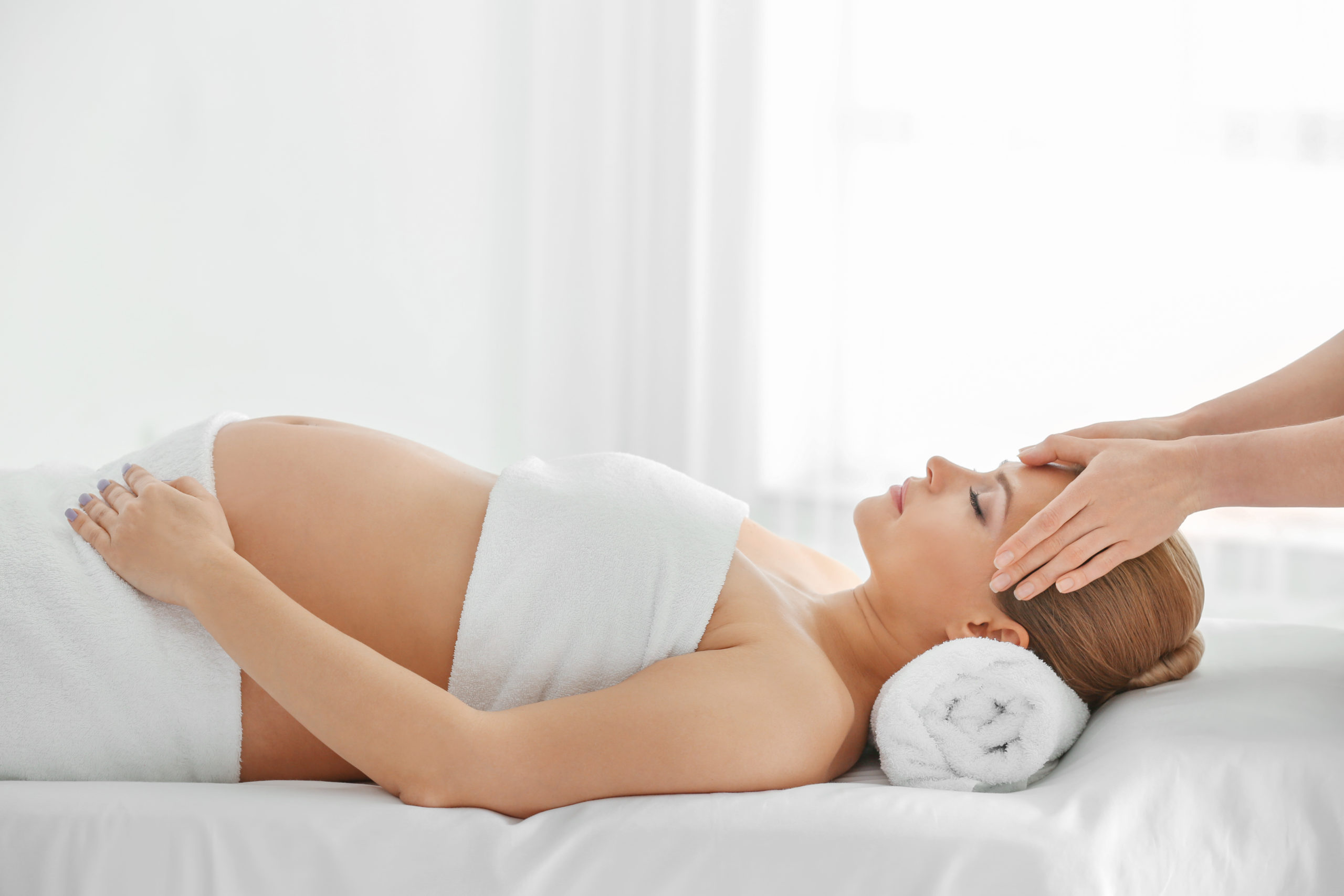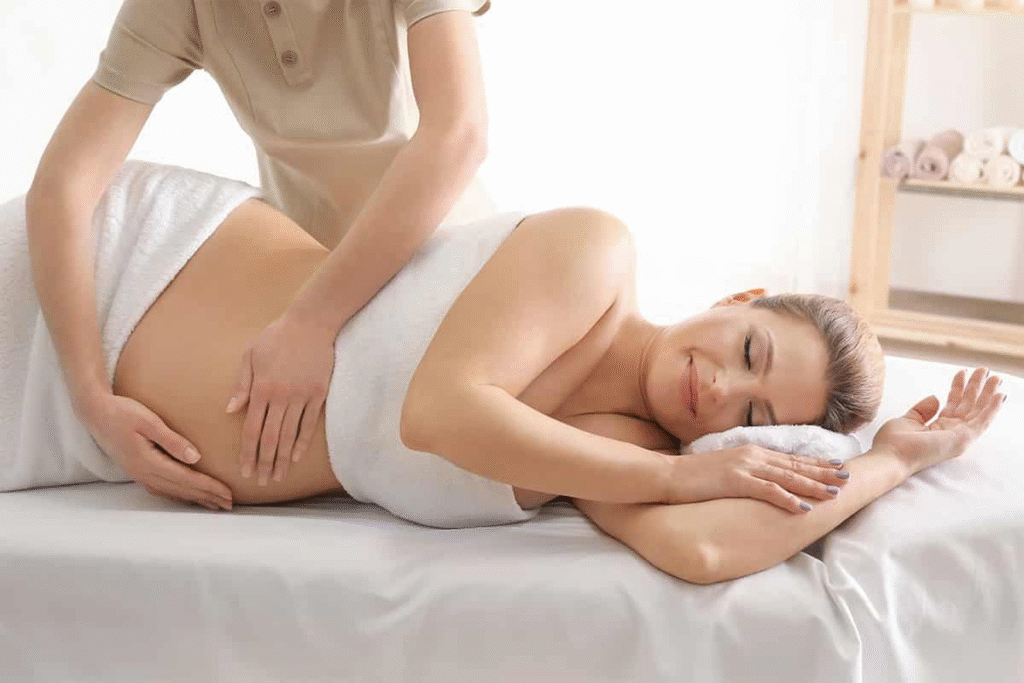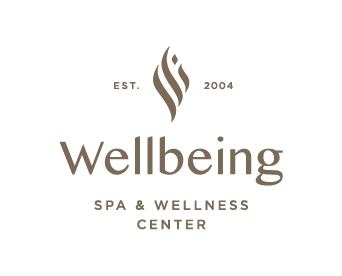
The Ultimate Guide to Prenatal Spa and Maternity Wellness Treatments: Safe Relaxation for Expectant Mothers

Pregnancy is a beautiful journey filled with anticipation, change, and deep emotional connection—but it also brings physical discomfort, fatigue, and hormonal fluctuations. For many expectant mothers, visiting a prenatal spa becomes not just a luxury, but an essential part of self-care. Specialized pregnancy massages, water relaxation therapies, and maternity wellness treatments provide safe, soothing, and effective ways to support both body and mind during this transformative time.
In this comprehensive guide, we’ll explore how spa experiences designed for pregnant women can reduce stress, ease muscle tension, improve sleep, and nurture emotional balance. Whether you’re in your first trimester or nearing the end of your pregnancy, the right spa treatments can help you feel centered, comfortable, and radiant.
1. Why Prenatal Spa Experiences Matter

Pregnancy changes everything—from hormone levels to posture, blood circulation, and sleep patterns. These shifts often lead to back pain, swelling, tired legs, and emotional ups and downs. Regular spa visits tailored to pregnancy needs can bring enormous benefits.
A prenatal spa is not just a place to relax—it’s a supportive wellness environment where every treatment is adapted to suit the safety and comfort of the expectant mother. Professional therapists trained in maternity wellness treatments understand how to use specific techniques that encourage relaxation without putting pressure on sensitive areas.
Key benefits include:
- Relief from back, hip, and joint pain
- Improved circulation and reduced swelling
- Better sleep quality
- Hormonal balance support
- Stress reduction and emotional calm
- Enhanced connection between mother and baby
2. Understanding What Makes a Spa Pregnancy-Friendly
Not every spa is automatically equipped to treat pregnant women. True pregnancy-friendly spas focus on safety, comfort, and gentle wellness. This includes using pregnancy-safe oils, special massage tables with belly cutouts or cushions, and avoiding high heat environments like saunas and steam rooms.
A certified prenatal spa therapist is trained to:
- Avoid deep pressure on the abdomen and lower back.
- Use side-lying or semi-reclined positions for massages.
- Adjust aromatherapy oils for pregnancy safety (avoiding strong essential oils).
- Monitor temperature and hydration carefully.
If you’re unsure whether a spa offers pregnancy-safe services, look for dedicated maternity wellness treatments or prenatal spa packages in their menu.
3. The Healing Power of Prenatal Massage

One of the most popular and beneficial spa treatments during pregnancy is the pregnancy massage. This specialized massage uses gentle strokes, light pressure, and carefully adjusted positions to promote relaxation and physical relief.
How Pregnancy Massage Helps
- Reduces back and hip pain: As the belly grows, posture shifts and muscles tighten. Gentle massage helps release tension in the lower back, hips, and shoulders.
- Improves circulation: Pregnancy massage enhances blood and lymph flow, reducing swelling in the feet and legs.
- Encourages relaxation: Regular sessions help lower cortisol (stress hormone) levels, promoting better mood and sleep.
- Supports hormonal balance: Calming touch can influence the release of serotonin and dopamine, improving overall well-being.
Massage Techniques Used
- Swedish massage: Light and rhythmic strokes to improve circulation and ease tension.
- Side-lying massage: The safest position during pregnancy, ensuring comfort and stable support.
- Foot and leg massage: Focused on relieving edema and fatigue.
- Scalp and neck massage: Gentle relaxation for tension headaches and stress.
A prenatal massage typically lasts between 45 to 75 minutes and avoids deep-tissue pressure. Always ensure your therapist is trained in maternity massage and aware of your pregnancy stage before starting the session.
4. Foot Relief and Leg Therapy for Expectant Mothers

Swollen feet and tired legs are among the most common pregnancy complaints, especially in the later months. Specialized foot relief treatments at a prenatal spa can make a world of difference.
Safe and effective options include:
- Cooling foot soaks with natural minerals or mild herbal infusions.
- Gentle foot massage to reduce puffiness and stimulate circulation.
- Light exfoliation using natural scrubs to soften the skin.
- Moisturizing wraps with shea butter or coconut oil for hydration.
Foot reflexology, when adapted for pregnancy, can also help with relaxation and energy balance. However, only trained specialists should perform reflexology for pregnant women, as certain pressure points must be avoided.
Benefits of pregnancy foot therapy:
- Reduces leg cramps and swelling
- Alleviates ankle discomfort
- Improves circulation in lower limbs
- Offers deep relaxation before sleep
A pregnancy foot massage is also a wonderful bonding ritual at home—partners can gently apply moisturizer in circular motions to bring comfort and care.
5. Water Relaxation Therapy – The Weightless Wonder

Water offers one of the most soothing and supportive environments for expectant mothers. Hydrotherapy and aqua relaxation treatments are increasingly popular in modern prenatal spas because they provide physical relief without strain.
How it works:
- The buoyancy of water relieves joint pressure and supports the belly’s weight.
- Gentle water movement improves blood flow and reduces edema.
- Warm (not hot) water relaxes muscles and promotes a sense of calm.
Popular water-based maternity wellness treatments include:
- Prenatal floatation therapy: You float effortlessly in a temperature-controlled pool or saltwater tank, feeling light and deeply relaxed.
- Watsu (water shiatsu): A trained therapist moves and stretches your body gently in warm water, combining massage and movement therapy.
- Aqua yoga or water stretching: Gentle movements in the pool improve flexibility and posture without stress on joints.
Safety note: Water temperature should never exceed 37°C (98.6°F) to avoid overheating. Always confirm that the spa pool is well-maintained and sanitized.
6. Mood and Emotional Support Through Spa Therapies
Pregnancy is as emotional as it is physical. Mood swings, anxiety, and restlessness are common, especially with hormonal changes and anticipation. Spa environments designed for prenatal relaxation help mothers-to-be find peace, balance, and mindfulness.
Mood-enhancing elements include:
- Aromatherapy with pregnancy-safe oils: Calming scents like lavender, chamomile, or mandarin can ease anxiety and promote restful sleep.
- Sound therapy: Gentle music, ocean sounds, or Tibetan bowls encourage deep relaxation.
- Mindfulness and breathing sessions: Guided meditation and deep breathing help regulate emotions and connect with the growing baby.
- Prenatal facials and scalp treatments: These gentle treatments provide comfort, enhance self-confidence, and reduce stress.
A nurturing maternity wellness treatment not only soothes the body but also helps expectant mothers reconnect with themselves emotionally—something that can be profoundly healing.
7. Spa Treatments to Avoid During Pregnancy

While spa experiences can be incredibly beneficial, not all treatments are suitable for pregnant women. To ensure safety, expectant mothers should avoid or postpone:
- Saunas, steam rooms, and hot tubs: Excess heat can raise body temperature and cause dizziness or dehydration.
- Deep tissue or pressure-point massages: These can be too intense or stimulate areas that should remain untouched during pregnancy.
- Strong essential oils: Some (like rosemary, jasmine, or clary sage) can stimulate uterine contractions.
- Body wraps with heat or detox ingredients: They may overheat the body or include chemicals unsuitable for pregnancy.
A reputable prenatal spa always uses pregnancy-safe methods and will adjust every detail—from room temperature to essential oil choice—to ensure comfort and well-being.
8. Creating a Maternity Spa Ritual at Home
Even if you can’t visit a spa regularly, it’s easy to create a mini maternity wellness experience at home. These simple, safe rituals help maintain relaxation between professional treatments:
- Warm bath soak: Use mild bath salts or oatmeal powder to soften the skin and relax the body.
- Breathing exercises: Practice slow, deep breathing to calm the mind and promote oxygen flow.
- Self-massage: Gently massage your belly, legs, or hands using natural oils like almond or jojoba.
- Stretching and meditation: Gentle prenatal yoga stretches and short mindfulness sessions ease stress and tension.
- Hydration and rest: Drink plenty of water and allow yourself moments of stillness each day.
Integrating these self-care moments helps extend the benefits of professional spa treatments and builds a consistent foundation for emotional and physical wellness.
9. The Role of Partners in Prenatal Spa Wellness
Spa treatments can also become a shared experience that strengthens emotional bonds between partners. Many spas offer couple’s prenatal packages where both parents can unwind together—one receives a full relaxation massage while the expectant mother enjoys a gentle pregnancy-safe session.
Partners can also participate in home rituals by:
- Helping with gentle back or foot massages.
- Attending prenatal yoga or breathing sessions together.
- Creating a calming space with soft lighting and peaceful music.
These shared moments reduce stress and help both partners prepare emotionally for parenthood.
10. How Prenatal Spa Treatments Support Long-Term Health

The benefits of maternity wellness treatments go beyond temporary relief—they contribute to long-term well-being during and after pregnancy.
Physical health benefits:
- Improved circulation reduces the risk of varicose veins and leg discomfort.
- Muscle relaxation helps the body adjust more comfortably to changing posture.
- Lower blood pressure through relaxation reduces stress-related symptoms.
Emotional and mental benefits:
- Lower stress hormone levels (cortisol) promote better sleep and mood balance.
- Encourages body positivity and self-acceptance during a time of change.
- Supports mental readiness for childbirth and postpartum recovery.
After birth, many mothers continue visiting wellness spas for postnatal recovery treatments, which help with back relief, muscle tone, and emotional rejuvenation.
11. Choosing the Right Prenatal Spa
To find the best prenatal spa for your needs, consider:
- Certification: Ensure therapists are trained in prenatal care and certified for pregnancy massage.
- Hygiene and safety: The spa should maintain clean facilities and follow health protocols.
- Atmosphere: A calm, scent-free or lightly aromatic environment helps sensitive guests feel comfortable.
- Personalization: Look for spas that tailor treatments to each trimester and physical condition.
Some luxury wellness centers even offer holistic maternity programs—combining massage, nutrition advice, meditation, and water therapy into a complete prenatal wellness journey.
12. Trimester-by-Trimester Spa Guide

First Trimester (Weeks 1–13):
- Focus on gentle relaxation only. Avoid intense heat and aromatherapy.
- Ideal treatments: light hand and foot massage, relaxation facial, mild hydrotherapy.
Second Trimester (Weeks 14–27):
- Safest time for pregnancy massage and water relaxation.
- Ideal treatments: prenatal massage, foot therapy, body moisturizing, aqua yoga.
Third Trimester (Weeks 28–40):
- Focus on comfort, circulation, and rest.
- Ideal treatments: side-lying massage, cooling leg therapy, breathing and relaxation sessions.
Each stage of pregnancy has its own needs—so always discuss your current week and comfort level with the therapist before starting.
13. The Emotional and Symbolic Meaning of Prenatal Spa Care
Beyond the physical benefits, visiting a prenatal spa carries emotional meaning. It’s a moment of self-honoring—a pause in the busy rhythm of pregnancy where the mother reconnects with her inner calm.
The soothing environment, nurturing touch, and sensory harmony all contribute to emotional stability and self-awareness. This type of care fosters a deep connection not only to oneself but also to the baby growing within.
Many mothers describe prenatal spa sessions as “the most peaceful hours of their pregnancy”—a sacred time to breathe, relax, and embrace the beauty of change.
14. Final Thoughts: Embrace Serenity and Self-Care

A prenatal spa experience is more than pampering—it’s a vital element of maternity wellness that nurtures physical comfort, emotional stability, and spiritual balance. From pregnancy massages that ease sore muscles to water relaxation therapies that offer weightless tranquility, these treatments help mothers-to-be rediscover peace and energy.
Whether you choose to visit a professional maternity wellness spa or create your own sanctuary at home, consistent self-care throughout pregnancy has lasting benefits. It supports better sleep, lowers stress, and prepares the body and mind for the journey of motherhood.
Because every expecting mother deserves not only care—but also calm, confidence, and comfort as she brings new life into the world.





Leave a Reply